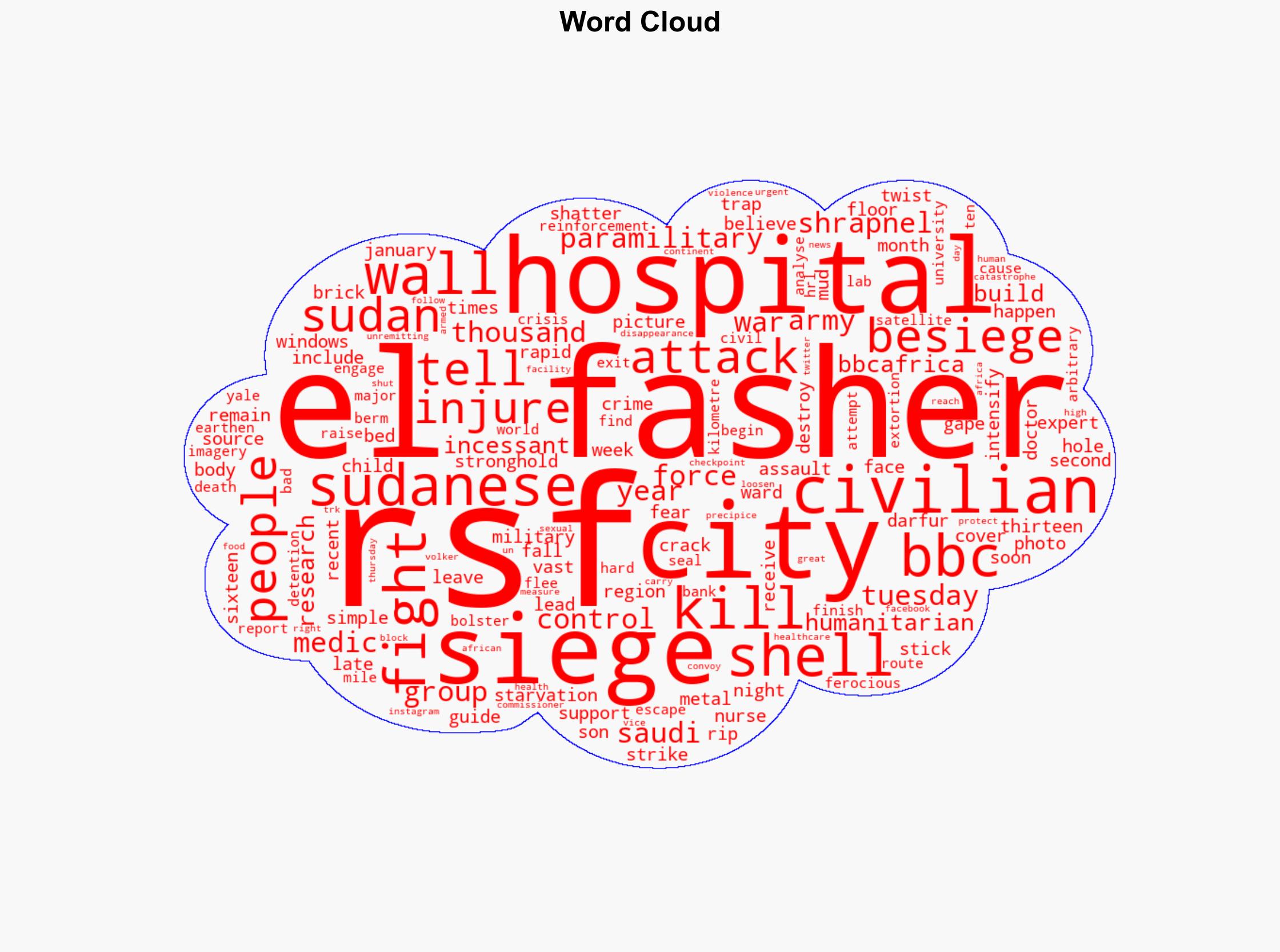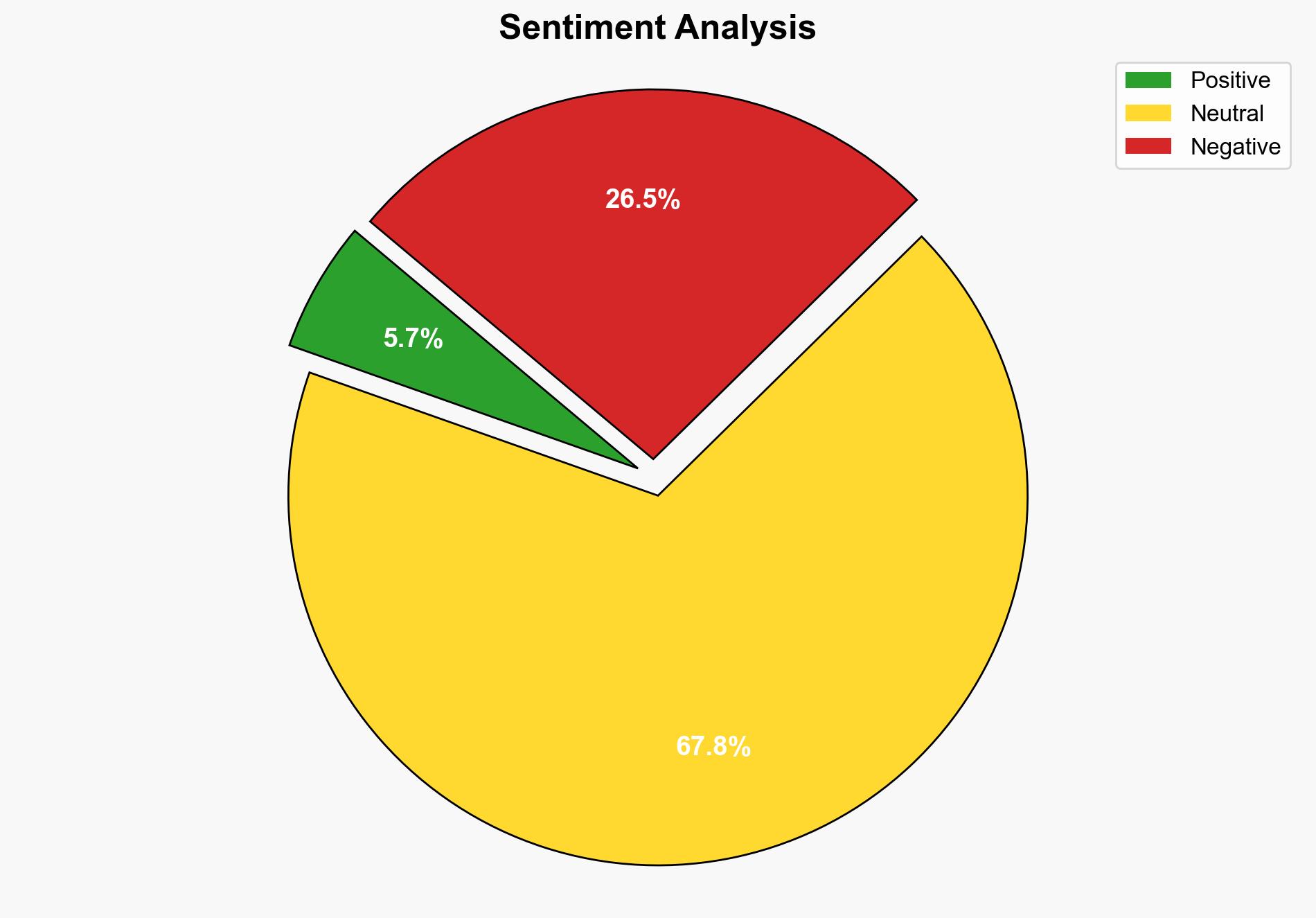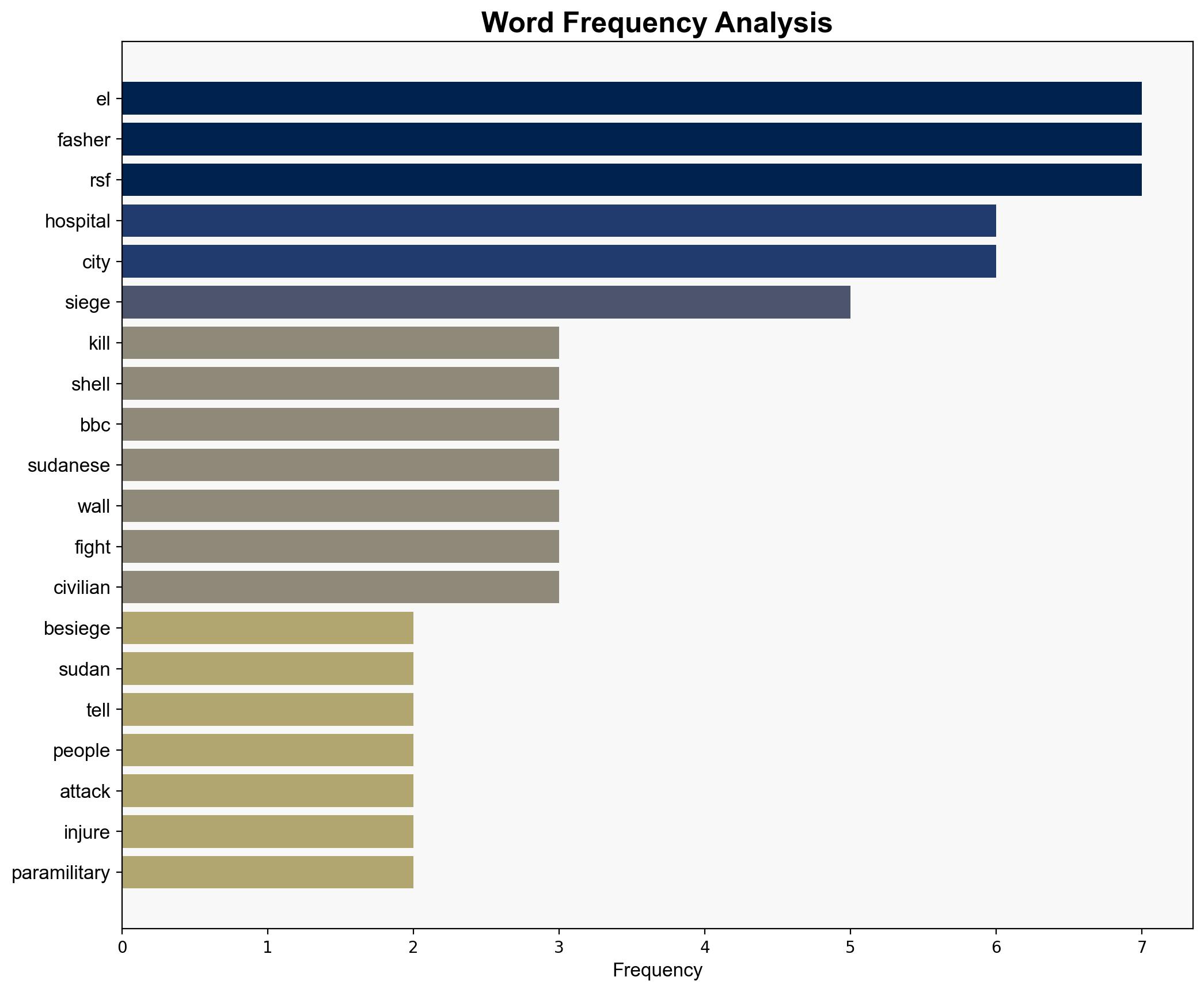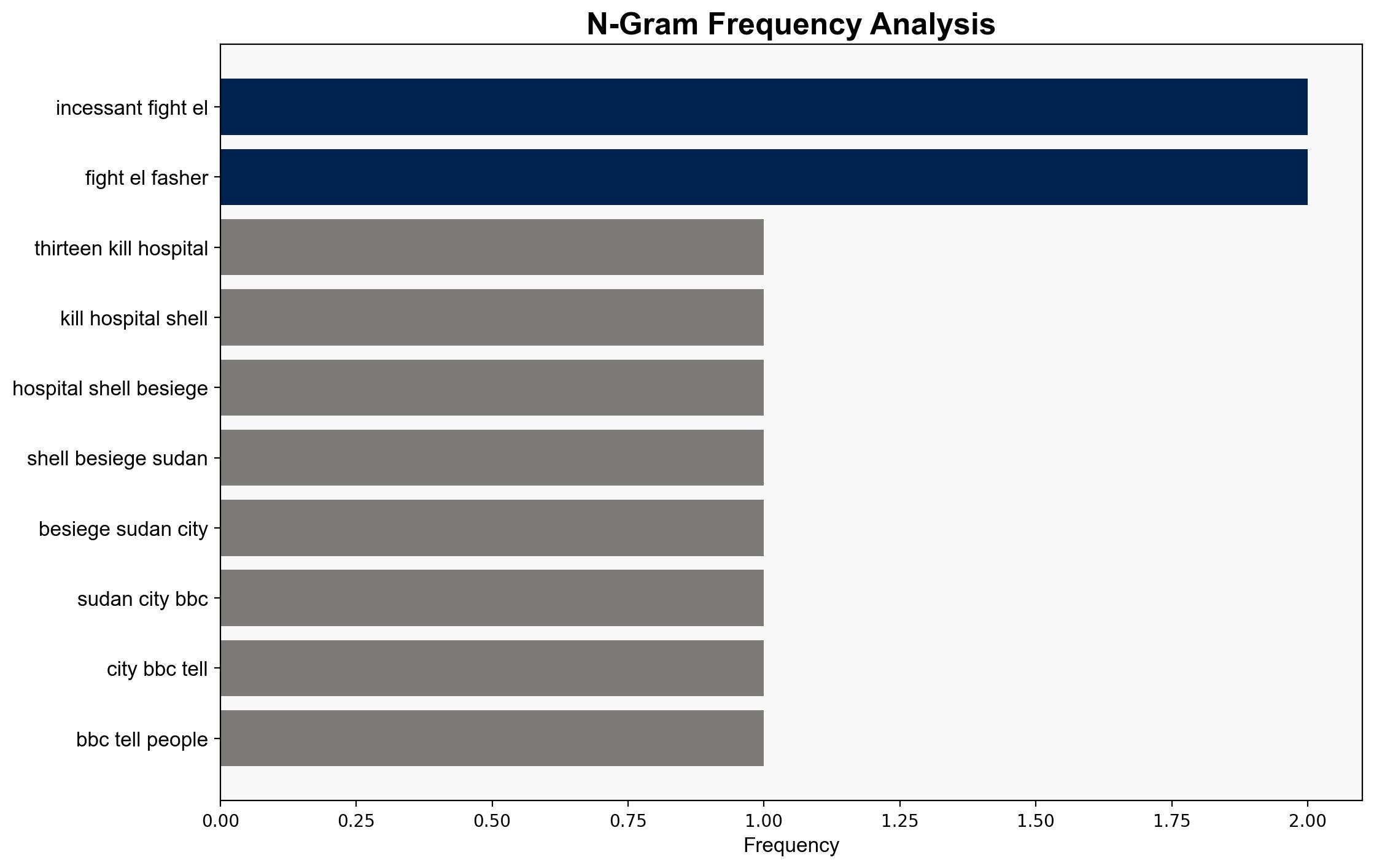Thirteen killed as hospital shelled in besieged Sudan city BBC told – BBC News
Published on: 2025-10-09
Intelligence Report: Thirteen killed as hospital shelled in besieged Sudan city BBC told – BBC News
1. BLUF (Bottom Line Up Front)
The situation in El Fasher, Sudan, is critical, with the paramilitary Rapid Support Forces (RSF) intensifying their siege, resulting in significant civilian casualties and humanitarian distress. The most supported hypothesis is that the RSF aims to consolidate control over El Fasher by incapacitating critical infrastructure and instilling fear. Confidence level: High. Recommended action: International diplomatic intervention to negotiate humanitarian corridors and pressure for a ceasefire.
2. Competing Hypotheses
1. **Hypothesis A**: The RSF is deliberately targeting hospitals and civilian infrastructure to weaken the opposition and consolidate control over El Fasher.
– **Supporting Evidence**: Reports of shelling on hospitals, construction of earthen walls to enforce the siege, and control over checkpoints.
– **Structured Analytic Technique**: Cross-Impact Simulation suggests that targeting hospitals would effectively demoralize the population and disrupt opposition logistics.
2. **Hypothesis B**: The shelling of the hospital was an unintended consequence of broader military operations aimed at neutralizing opposition forces.
– **Supporting Evidence**: The chaotic nature of urban warfare and the possibility of collateral damage in densely populated areas.
– **Structured Analytic Technique**: Bayesian Scenario Modeling indicates a lower probability for this hypothesis due to the pattern of targeted infrastructure attacks.
3. Key Assumptions and Red Flags
– **Assumptions**: Hypothesis A assumes intentional targeting of civilian infrastructure, while Hypothesis B assumes collateral damage.
– **Red Flags**: Lack of independent verification of events due to restricted access. Potential bias in reports from parties involved in the conflict.
– **Blind Spots**: Limited information on RSF’s internal strategic objectives and potential external influences or support.
4. Implications and Strategic Risks
– **Humanitarian Crisis**: Continued siege could lead to severe shortages of food, medical supplies, and essential services, exacerbating the humanitarian crisis.
– **Regional Destabilization**: Prolonged conflict may spill over into neighboring regions, affecting regional stability and security.
– **Escalation Risks**: Intensified fighting could provoke international intervention or increase support for opposition groups, leading to broader conflict.
5. Recommendations and Outlook
- Immediate diplomatic engagement to establish ceasefire negotiations and open humanitarian corridors.
- Monitor for signs of escalation or external intervention, which could alter the conflict dynamics.
- Scenario Projections:
– **Best Case**: Successful negotiation of a ceasefire and establishment of humanitarian aid routes.
– **Worst Case**: Escalation into a broader regional conflict with significant civilian casualties.
– **Most Likely**: Continued siege with sporadic international diplomatic efforts and limited humanitarian relief.
6. Key Individuals and Entities
– **Rapid Support Forces (RSF)**: Primary entity enforcing the siege.
– **Sudanese Armed Forces**: Opposing entity in the conflict.
– **Volker Türk**: UN High Commissioner for Human Rights, advocating for urgent measures.
7. Thematic Tags
national security threats, humanitarian crisis, regional conflict, international diplomacy





